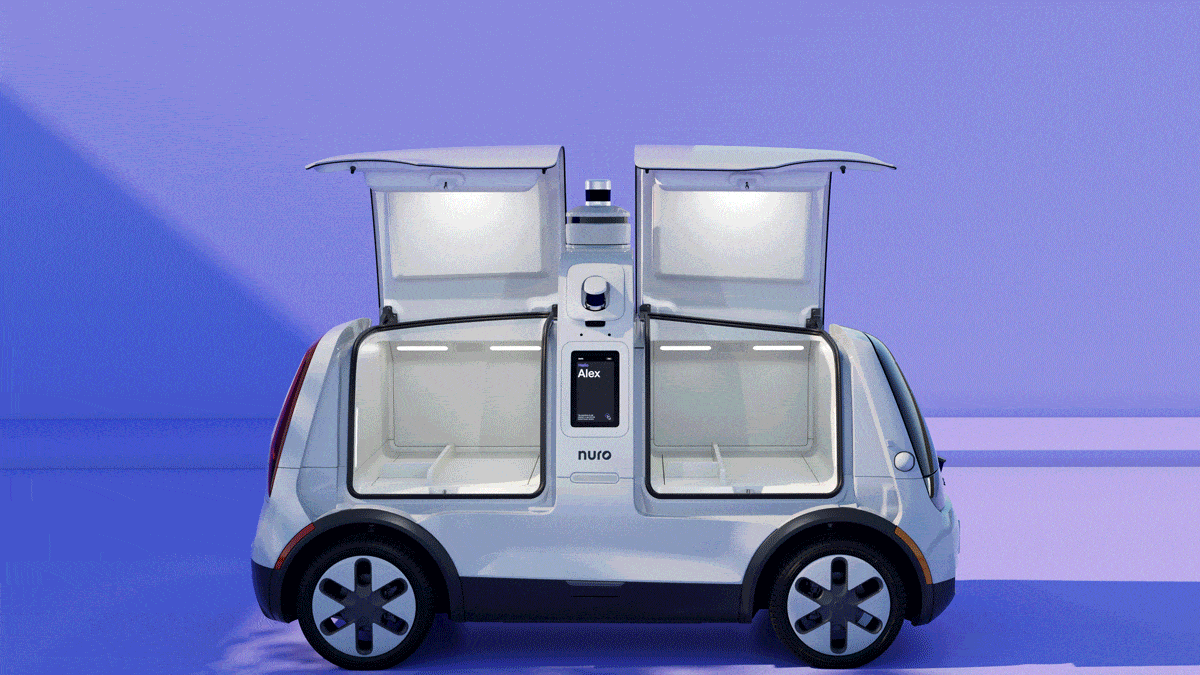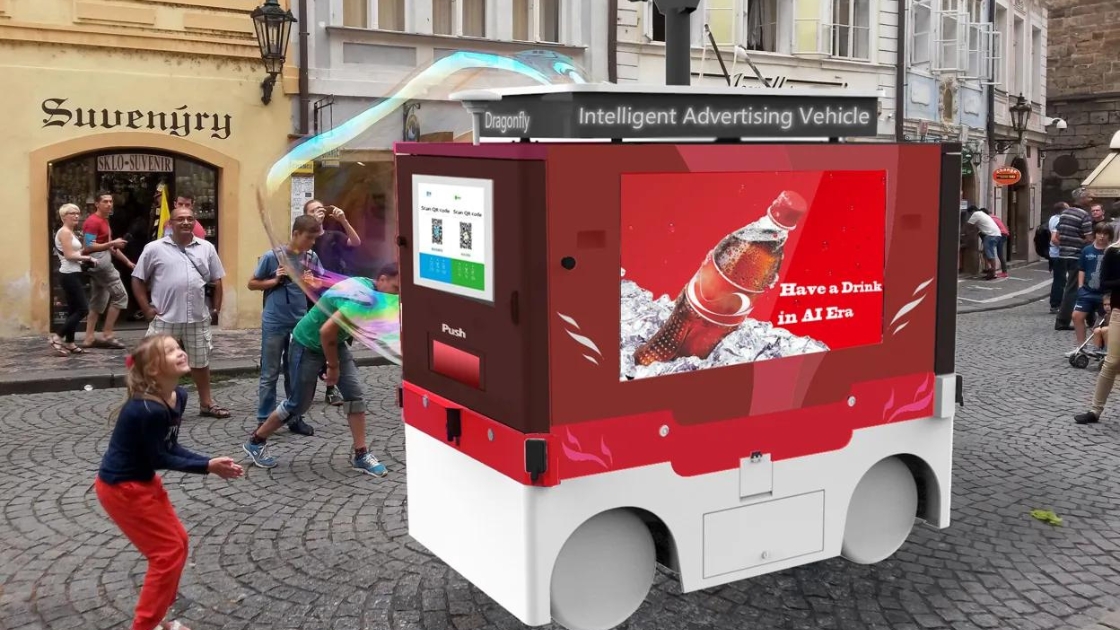
For years, people have wondered what the future holds for the country's workforce, and even more so when Amazon introduced the Scout—a delivery robot system—in 2019. Although Amazon stopped testing its six-wheeled delivery robots, autonomous mobile robots (AMRs) have continued to grow in popularity.
According to recent data, the North American AMR industry was valued at $762.3 million in 2021 and is projected to be over $3.2 billion by 2028. This is not a threat to the workforce. Instead, this growth in AMRs presents a humongous opportunity for businesses and advertisers.
However, challenges abound. This article highlights these challenges as they relate to the growing AMR industry and how advertisers can capitalize on its growth.
The Rising Robot Adoption In Outdoor Advertising
In 2022, over 44,100 autonomous robots were sold, mostly to U.S. companies. That’s an 11% growth in robot adoption following a record-setting 2021. The majority of these robots are used for outdoor package deliveries, cleaning, security and safety purposes. As businesses own and operate more AMRs, the innovation is gradually becoming a potentially valuable stream of advertising revenue. In 2021, some food delivery robots in Texas were built with illuminated LED displays for digital outdoor advertising.
As far as autonomous vehicles go, the AMR industry has piggybacked on traditional outdoor advertising. Back in 2018, an autonomous mobile vending machine with digital advertising displays took the residents of California by surprise. While most are excited about these advancements, robot companies and advertisers may have to beat harsh public reservations.
Public Reservations Against Road-Plying Robots
The record-setting numbers of autonomous robot purchases have sent America’s manufacturing jobs into scampers. Today, the population is coming to terms with the fact that the collaboration of humans and robots boosts productivity. But that wasn’t without fervent protests.
For road-using autonomous robots, the case isn’t so different. In 2018, a self-driving car killed a pedestrian in Arizona, causing a revolt against autonomous mobile vehicles in the state. Within the months that followed, dozens of Google’s Waymo vans were vandalized by Arizonans, spotting safety challenges as a major reason.

Despite the revolts against self-driving vehicles on the streets, private and institutional investors are still pouring billions into autonomous taxis (paywall). What are the incentives? A future beyond manufacturing, ride-sharing and package delivery.

In advertising—and marketing, generally—the cost of AMRs poses a challenge to their use as mobile billboards. However, strategic partnerships with outdoor-deployed service robot companies can be a viable solution.
Nevertheless, the issue of mobility and connectivity prevails. AMRs are designed to navigate environments with minimal or no human supervision. A study published in the British International Journal of Business and Marketing Research posits that for robots to effectively navigate their environment, they need to be connected to the internet at all times. Connectivity latency could disrupt movement and advertising reach.
What The Future Holds For Outdoor Robots And AdvertisingInterestingly, advertising agencies are currently partnering with robotics companies, offering autonomous package delivery services around the country. While building LED displays on AMRs can increase the cost and lower the efficiency of their mobility, the bare bodies of these robots have been put to good useIt is intriguing to note that advertising agencies are presently collaborating with robotics companies, providing autonomous parcel delivery services nationwide. While incorporating LED displays onto AMRs can raise costs and reduce their mobility efficiency, the physical structures of these robots have found practical applications.
The concept of car wrapping services has been established for a considerable period. However, startups are now venturing into robot wrapping as an effective approach to outdoor advertising. An example of this can be seen in the recent collaboration between my company and Serve Robotics, aimed at enhancing wildfire prevention efforts.
Considering the recent growth in global outdoor advertising and the rising cost of online ads, there’s a growing possibility of autonomous robot controllers integrating with the outdoor advertising market. Also, as Alphabet rolls out Waymo in cities, the opportunity glares at advertising agencies looking to maximize their brand reach.
Incorporating AMRs Into Your Marketing StrategyAdvertising with AMRs is similar to other outdoor advertising campaigns. However, you might want to pay a little more attention to mobility, especially if you intend to use road-plying service robots.
The first step to incorporating AMRs into your outdoor advertising strategy is to clearly define your target audience profiles. There’s no point in advertising on pizza delivery robots in high-end neighborhoods if your ideal customers live in lower socioeconomic communities.
Second, finding means to collect and analyze advertising data should be at the center of your strategy. Often, most outdoor service robots have data collection technology (e.g., Bluetooth low-energy signals) that helps you track the performance of your campaign in real time.
Finally, never forget to look good. Whether you’re wrapping delivery robots or using AMRs with LED displays, working with a good designer to create stunning graphics for your campaign can help you build a memorable experience.
For more information on OOH and DOOH advertising, and how we can help with your next campaign, contact us today at 210-610-5012 or email customerservice@bmoutdoor.com
#TheEconomist #PresenceAndParticipation #CreativeAdvertising #FoodDebate #Billboards #ArtificialIntelligence #RenewedAdvertising
Share This:














